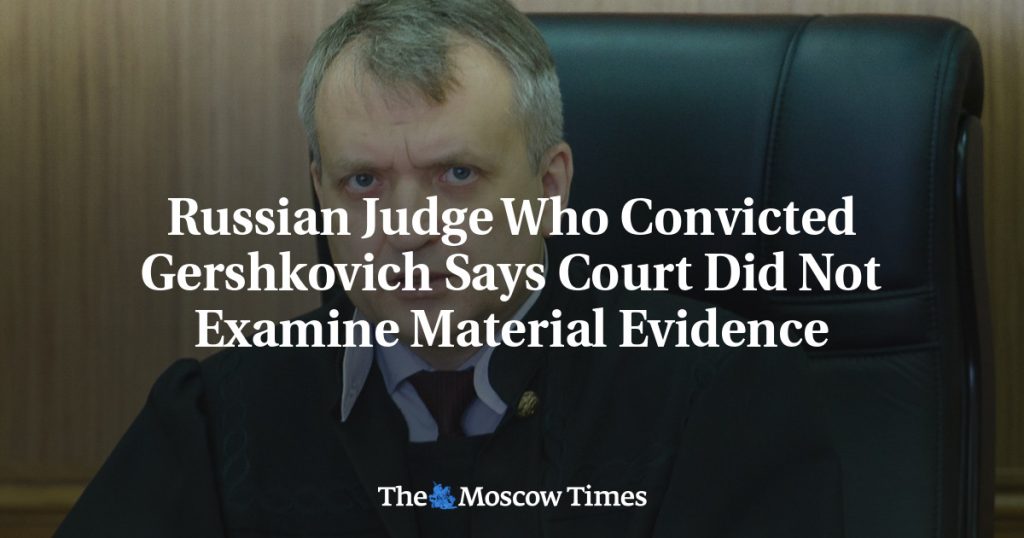The Russian judge handling the case of Wall Street Journal reporter Evan Gershkovich revealed that the trial was brief because no material evidence was examined, and the verdict was reached quickly because he was able to type fast. The judge mentioned that the case was small, with only a few folders involved. Neither the prosecution nor the defense requested to consider case materials, allowing for a rapid resolution. These comments were made at a conference in Yekaterinburg where the judge discussed various cases he had worked on during his career.
Gershkovich was arrested in March 2023 while on a reporting trip to Yekaterinburg, becoming the first foreign journalist held for espionage in Russia since the Soviet era. His trial, conducted behind closed doors due to the nature of the charges, commenced in June 2024. Prosecutors accused him of gathering secret information about a tank factory, which led to a 16-year prison sentence in July. However, he was released two weeks later in a significant prisoner exchange, marking the largest such exchange since the Cold War. The judge, Mineyev, expressed his conviction that Gershkovich was not only a journalist but also a spy and a CIA agent.
Amidst these events, The Moscow Times issued a message to its readers, detailing the challenges faced due to being labeled “undesirable” and a “foreign agent” by Russia’s authorities. They emphasized the importance of supporting independent journalism in Russia and how every contribution, no matter how small, makes a significant impact. The journalists at The Moscow Times refused to be silenced and urged readers to stand with them in defending open and unbiased reporting on Russia. The message highlighted the need for ongoing support to continue their work in the face of repression.
The judge’s swift handling of Gershkovich’s case, citing his ability to type quickly as a factor in the rapid decision-making process, raised concerns about the lack of thorough examination of material evidence. The unusual circumstances surrounding the trial, including the closed-door proceedings and espionage charges, added to the complexity of the situation. Gershkovich’s release in a prisoner exchange underlined the broader political dimensions at play in his case, indicating a larger geopolitical backdrop influencing the legal proceedings and eventual outcome.
The juxtaposition of Gershkovich being labeled a journalist, a spy, and a CIA agent by the judge highlights the blurred lines between journalism, espionage, and intelligence activities. The implications of such accusations on press freedom and the rights of journalists to report without fear of reprisal are significant. The overall impact of the case on foreign journalists operating in Russia and the challenges they face in navigating the evolving media landscape underscore the broader implications for freedom of the press and the protection of journalistic integrity in the country. The case serves as a reminder of the risks faced by journalists working in restrictive environments and the importance of upholding journalistic freedoms globally.


